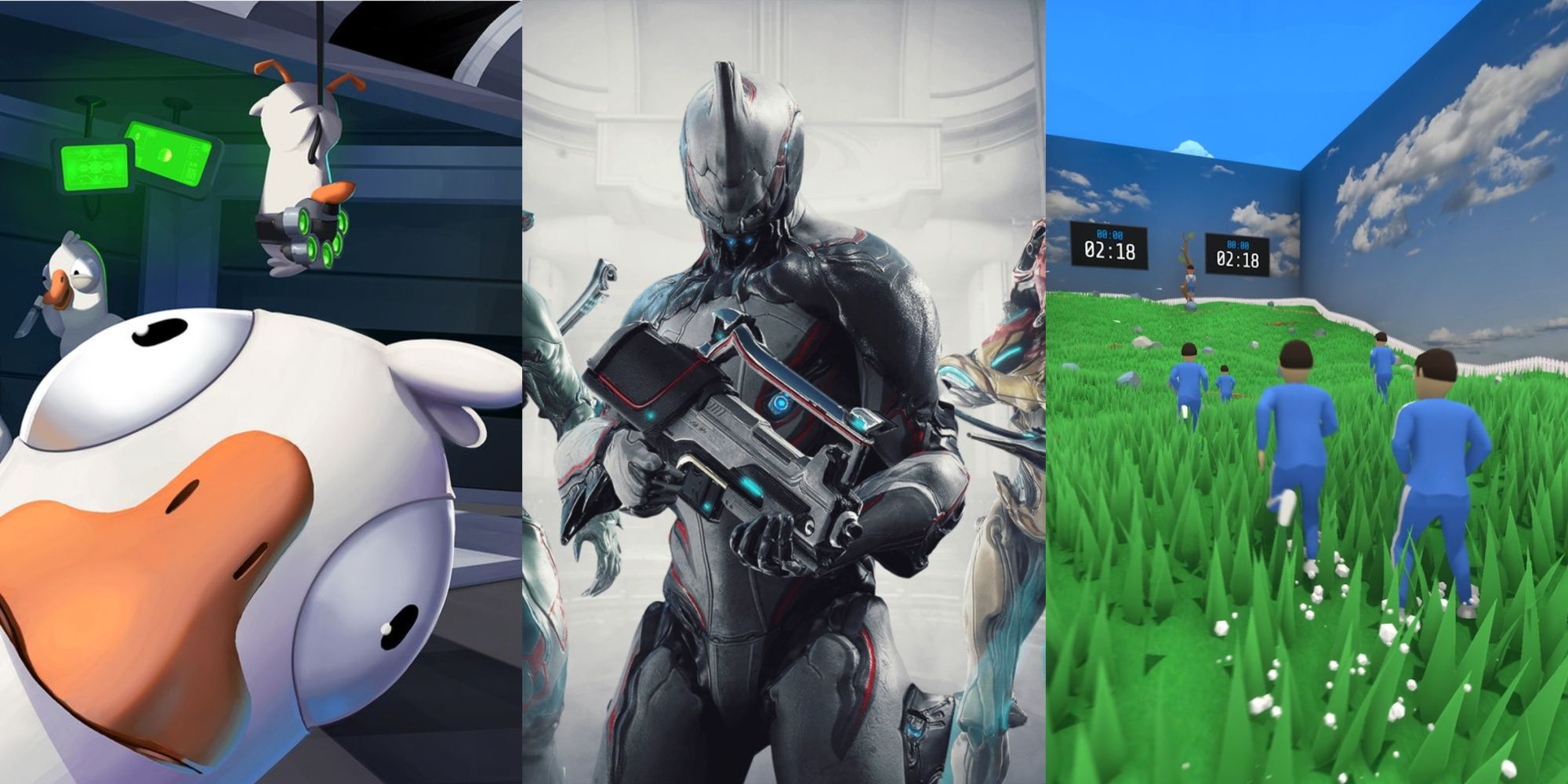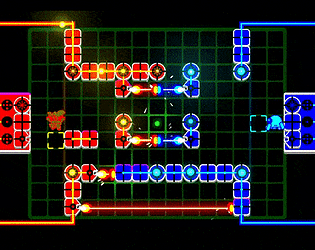Test Your Strategic Abilities in one of the most Engaging Multiplayer Gamings
In the ever-evolving landscape of multiplayer gaming, strategic skills are the keystone of success, offering gamers an opportunity to showcase their tactical prowess throughout various styles. As gamers engage in team-based competitions or participating experiences, the necessity of fast decision-making and collaboration becomes evident.
Real-Time Strategy Showdowns
Real-time strategy (RTS) showdowns have long been a cornerstone of involving multiplayer gaming, captivating players with their blend of tactical depth and busy decision-making. These games require gamers to take care of resources, develop armies, and develop intricate techniques in real-time, commonly against equally skilled challengers. The continuous stress to adjust and outmaneuver opponents in a dynamic setting is what establishes RTS video games apart, making them a favored amongst competitive gamers.
Among the defining attributes of RTS face-offs is the focus on multitasking and source administration. Players have to allocate their interest across various tasks, such as gathering resources, building buildings, and deploying systems strategically throughout the combat zone. This necessitates quick reflexes and an intense ability to prioritize actions, frequently resulting in extreme, adrenaline-fueled matches.
Significant RTS video games such as "StarCraft II," "Age of Empires," and "Command & Conquer" have left indelible marks on the category, supplying varied gameplay technicians and richly in-depth globes. Multiplayer puzzle games for free. These titles have actually grown affordable scenes and committed neighborhoods, where players refine their abilities, research strategies, and take part in high-stakes events. The attraction of RTS face-offs exists in their capacity to test players' strategic acumen and reflexive expertise in equivalent procedure
Turn-Based Tactical Battles
These games supply gamers the opportunity to deliberate over each step, cultivating a chess-like atmosphere where insight and mindful planning are paramount. Gamers have to expect their challengers' actions, adapt to progressing scenarios, and perform well-balanced strategies to safeguard victory.
In multiplayer setups, turn-based tactical battles become sectors for intellectual duels. Competitors participate in intricate mind video games, forecasting and countering each other's methods with accuracy. Popular games like "XCOM 2" and "People VI" exhibit this gameplay, encouraging players to take into consideration every possible variable before committing to a strategy. The asynchronous nature permits thoughtful decision-making, making each experience an examination of wits and persistence.
Furthermore, turn-based tactical battles often integrate diverse units and capacities, adding layers of intricacy to every suit. Players have to stabilize offending maneuvers with protective strategies, take care of sources judiciously, and take full advantage of the possibility of their forces. This style's long-lasting allure hinges on its ability to test players' tactical acumen in a managed, intentional setup.
Cooperative Technique Experiences
These video games need gamers to work with each other in the direction of common purposes, leveraging each player's unique abilities and strengths to overcome challenges. Titles such as "Overcooked" and "Deep Rock Galactic" exemplify this category, emphasizing the need for players to integrate their actions and strategies.

The allure of participating method experiences exists in their capacity to enhance interpersonal skills while giving a challenging and engaging gameplay experience. These video games grow a sense of unity and common function, using players a gratifying alternative to standard competitive pc gaming landscapes.
Competitive Team-Based Obstacles
Competitive team-based challenges offer a dynamic sector where gamers pit their abilities against opposing groups, highlighting both individual talent and smooth team sychronisation. These games call for participants to stabilize personal prowess with critical partnership, cultivating a special environment where synergy is extremely important. Success in such settings often pivots on the ability to connect efficiently, implement well-planned approaches, and adapt swiftly to unfolding scenarios.
The compelling nature of these obstacles is apparent in the varied series of video games that offer team-based competition. Titles like "Organization of Legends," "Overwatch," and "Counter-Strike: Global Offensive" are at the center, each supplying distinctive gameplay mechanics that demand cohesion and tactical acumen. In these sectors, the team's performance is as essential as the private contributions of its members, making every function substantial to the overall result.
Moreover, competitive team-based games grow a feeling of camaraderie and shared accomplishment. Gamers need to learn to count on and count on each various other, building bonds that enhance the video gaming experience. The pressure of dealing with awesome challengers better magnifies the adventure, guaranteeing that individuals are constantly challenged to raise their calculated reasoning and gameplay implementation.
Mind-Bending Problem Conflicts
While competitive team-based challenges emphasize collaboration and technique, mind-bending puzzle conflicts use a various sort of intellectual involvement, concentrating on private analytic and cognitive prowess. These video games check the limitations of analytical thinking and imagination, requiring gamers to browse complex circumstances and address detailed challenges. Unlike team-based games, the focus here gets on personal accomplishment and psychological dexterity, typically under the pressure of time restraints or escalating difficulty degrees.
Players need to exercise spatial thinking, sensible deduction, and pattern recognition. Titles such as "The Witness" and "Portal 2" serve as quintessential examples, testing gamers with multidimensional puzzles that demand deep focus and innovative techniques.
Furthermore, multiplayer puzzle games introduce an one-upmanship by permitting gamers to match their analytic skills versus my website others. Gamings like "Keep Talking and No one Explodes" need gamers to interact successfully to solve challenges cooperatively, mixing the excitement of competitors with the complete satisfaction of joint success. Ultimately, these video games give an enhancing experience, developing tactical reasoning in an uniquely appealing atmosphere.
Conclusion
To conclude, the diverse variety of multiplayer video games offers an extraordinary system for developing calculated abilities across numerous styles. Real-time strategy showdowns like "StarCraft II" demand fast decision-making and resource management, while turn-based tactical battles emphasize systematic planning. Cooperative technique experiences such as "Deep Rock Galactic" highlight team effort and partnership, whereas affordable team-based obstacles, consisting of "Organization of Legends," require coordination and adaptability. These dynamic settings collectively foster the development of tactical thinking, best site boosting both individual and collective video gaming experiences.
These games call for gamers to handle resources, construct armies, and design intricate approaches in real-time, often versus equally competent opponents. These video games need players to function together in the direction of typical objectives, leveraging each player's special abilities and strengths to conquer difficulties.In cooperative strategy video games, players frequently presume roles with details obligations, demanding a deep understanding of their own capabilities as well as those of their colleagues. The dynamic nature of these video games demands flexibility, as players need to readjust their approaches in real-time to suit advancing circumstances.
